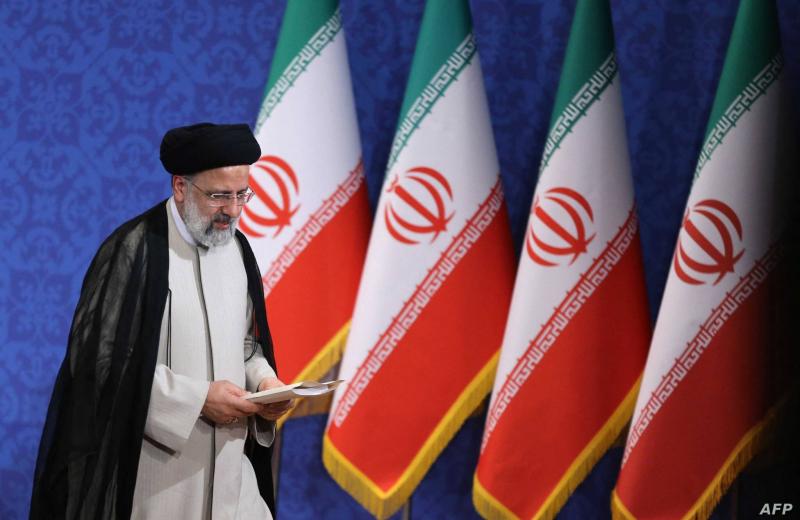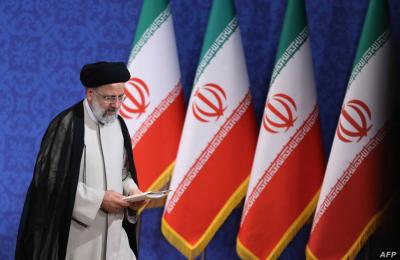Under the title "The First of Its Kind... Significant Consequences of the Trial of an Iranian Official in Sweden," Al-Hurra reported that just days ago, the Swedish public prosecutor charged an Iranian official named Hamid Nouri with war crimes for his role in a committee that issued mass executions in 1988. Experts say this move has implications for Iran's new president. The Swedish allegations against Nouri were made under the principle of "universal jurisdiction," which allows any national court to prosecute individuals accused of committing "atrocious crimes" regardless of their location.
The *New York Times* noted that the case against Nouri makes him the first Iranian defendant to face criminal charges based on universal jurisdiction for crimes committed within Iran. The American newspaper points out that this case could have repercussions for Iran's newly elected president, Ebrahim Raisi, who was also a member of the same committee that approved the mass executions.
#### What Is the Origin of the Story?
Bijan Bazorkan was among an estimated 5,000 political prisoners from armed opposition and leftist groups in Iran who Amnesty International and other human rights organizations say were executed in the summer of 1988. The then 28-year-old was a member of a communist group in Iran serving a 10-year prison sentence, and his family states he was executed without trial. Laleh Bazorkan, the deceased Iranian prisoner's sister, a 51-year-old pharmacist who emigrated to Sweden and lives in Stockholm, said, "Some people ask us to forgive and forget, but we cannot." In her conversation with *The New York Times*, she added: "The truth must come out, for accountability and to close this case."
Nouri worked as an assistant to the deputy prosecutor at Gohardasht Prison, where Bazorkan and hundreds of other prisoners were hanged. Approximately 30 plaintiffs, including Bazorkan’s sister, are expected to testify against Nouri in this trial. Nouri was arrested at Stockholm Airport when he arrived to visit his family in 2019; activists alerted the authorities to his travel plans, and they refused to release him on bail at the time.
Since then, Swedish authorities have initiated investigations and conducted interviews with dozens of family members of victims, survivors, and Iranian human rights activists who have documented testimonies and details of the mass executions for years. However, Nouri's lawyer denied the charges in Swedish media, claiming that the authorities mistakenly arrested the Iranian official.
Iran has consistently faced criticism from international human rights groups for the wave of mass executions that followed the end of the Iran-Iraq War. The executed prisoners at that time belonged to the Mujahideen-e Khalq, supported by the government of former Iraqi President Saddam Hussein, as well as leftist political groups. Human rights activists stated that most executed prisoners had not been convicted of capital crimes and were serving prison sentences.
#### Implications for Raisi
Nouri's trial is set to begin on August 10, just days after Ebrahim Raisi officially assumed office, and is expected to continue into April. Sixty-year-old Raisi was also a member of the same committee Nouri belonged to, which consisted of four individuals interrogating prisoners and issuing execution orders. Raisi claimed he was acting under the orders of the founding father of the revolution, Ruhollah Khomeini, who mandated the formation of the committee to facilitate the executions.
Legal experts noted that Iranian officials charged in Germany, France, and, most recently, Belgium were linked to assassinations and terrorist plots within those countries but had never been convicted for crimes committed inside Iran. Prominent human rights lawyer Shadi Sadr suggested that "the trial is extremely important to break the cycle of impunity from Iran to other locations for officials accused of serious human rights violations."
Iranian affairs researcher Hani Suleiman opined that "the timing of this trial is important and has serious implications for the new president's file," adding that it would present significant challenges for the Iranian regime, as what applies to Nouri also applies to Raisi. He noted that Raisi not only endorsed those executions but continued his judicial career, issuing orders for further executions, particularly of protesters during the recent protests from 2017 to 2020. Amnesty International previously called for an official investigation into the history of the newly elected Iranian president during his time in the judiciary before he became head of the judiciary in 2019.
However, Suleiman remarked that "the political calculations differ between Nouri and Raisi, given the latter's diplomatic immunity," suggesting Raisi might be treated diplomatically. Nonetheless, the Iranian affairs researcher indicated that the newly elected president's movements abroad would be relatively restricted in the coming period.
#### A "Not Applicable" Issue
For the past two years, elected president Ebrahim Raisi has been subject to U.S. sanctions for human rights violations, leading members of the Republican Party in the Senate to formally request the Biden administration not to grant Raisi a visa to enter the U.S. for United Nations General Assembly meetings in New York. In response, Iran's mission to the UN stated to *The New York Times* through a spokesperson that it had no comment on the trial in Sweden and that plans for Raisi's travel to the General Assembly remain unclear due to the COVID-19 pandemic. The Iranian embassy spokesperson indicated that the elected president would address the UN meeting either in person or virtually.
Suleiman discounted the likelihood of the U.S. barring Raisi from entry, citing "other considerations related to nuclear negotiations," saying, "Blocking him from entry is not on the table at least at this time." However, he mentioned it is possible Washington could use this issue as leverage during negotiations with Iran. Since April, the U.S. and Iran have been engaged in indirect negotiations in Vienna to revive the nuclear agreement known as the Joint Comprehensive Plan of Action (JCPOA), which was established in 2015 during President Obama's administration and exited by former President Donald Trump, who reimposed severe sanctions on Tehran.




